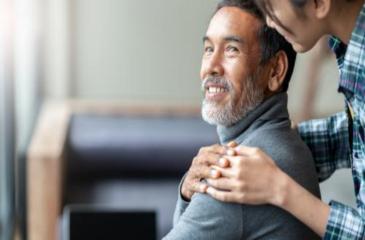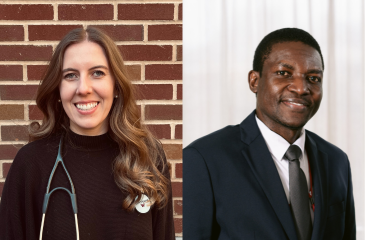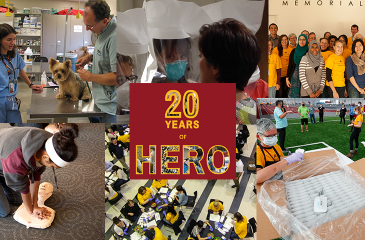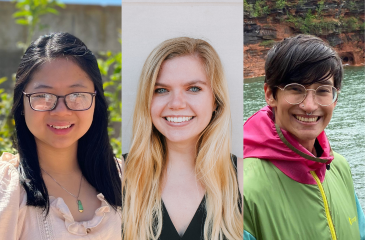Heard on campus (I didn’t make this up):
Student 1: “My dad is past his prime.”
Student 2: “Mine, too….”
Student 1: “No, I mean he’s really past his prime, and I don’t think he knows it!”
Ouch. (Especially when I realize how young the parents in question probably are.)
And yet, isn’t this how many of us start thinking about aging—when we notice it in our parents and families? And don’t most of us think it will never happen to us?
The stark truth is that we are all aging, probably with a degree of reluctance and concern, and possibly facing serious and/or chronic health problems.
Recent research reveals how even our earliest experiences—perhaps prenatal, possibly even pre-generational—can impact our health and aging. Research is rapidly transforming how we view this process in other ways. Two reviews from Nature brilliantly illustrate this: “From discoveries in ageing research to therapeutics for healthy ageing” and “Advances in epigenetics link genetics to the environment and disease.”
What we are learning is that, although we can’t avoid aging, there are some widely accepted things we can do to age more healthily. Below I am borrowing (and slightly rephrasing) from an article by Christopher Bergland (author of The Athlete’s Way) in Psychology Today: “7 Habits for a Healthy Mind in a Healthy Body: The secrets to well-being can be found in our evolutionary biology.”
- Good Healthcare: Collaborate with your clinician(s) to optimize your health.
- Daily Physicality: Exercise for at least 20 minutes most days of the week.
- Intellectual Curiosity: Spend some time in focused thought, exploring new ideas every day.
- Foster Creativity: Challenge your mind to connect unrelated ideas in new and useful ways.
- Human Unity: Create and maintain close-knit human bonds and a social support network.
- Energy Balance: Balance Calories in/Calories out, and reduce your carbon footprint.
- Voluntary Simplicity: Embrace the liberty that comes with wanting and needing less.
Aging healthily isn’t just a personal issue; it is also one of the most pressing health concerns for our state and the people we serve. The question for us at OACA is how can we work across disciplines to maximize and connect the tremendous resources here at the University? Aging touches every aspect of research and practice, even those outside of the healthcare fields (just scratching the surface here):
- College of Food, Agricultural and Natural Resource Sciences: healthy environment, diet, and food
- College of Liberal Arts: the philosophical and cultural views of aging
- College of Design: architecture and products designed to improve and extend independent living
- Humphrey School of Public Affairs: public policy regarding health and caregiving
- Carlson School of Management: the financial costs of healthcare and aging
- College of Education and Human Development: developing habits for healthy aging early in life
- Center for Bioethics: quality- and end-of-life issues
As you think about the ways that aging impacts your field—and bearing in mind #3 (Intellectual Curiosity) and #5 (Human Unity)—please consider participating in these opportunities this fall (anything I missed, please let me know via this Feedback form):
December 5: School of Public Health’s Healthy Futures Summit and 75th Gala
Thank you,
Jakub Tolar, MD, PhD
Vice President for Clinical Affairs



